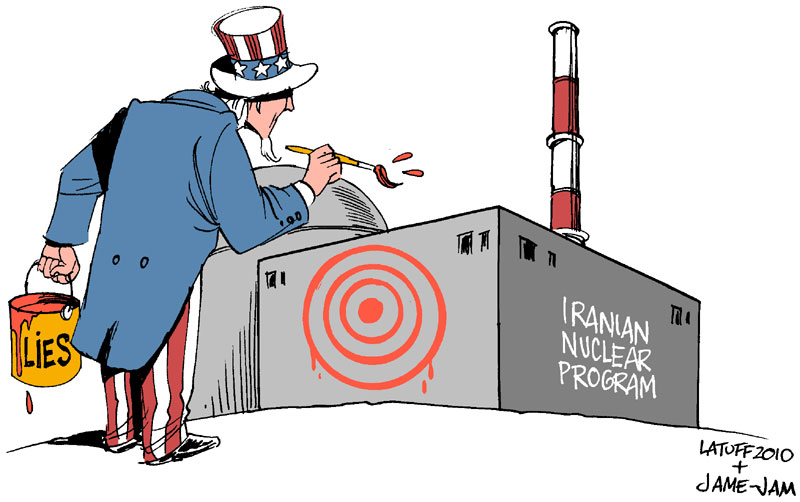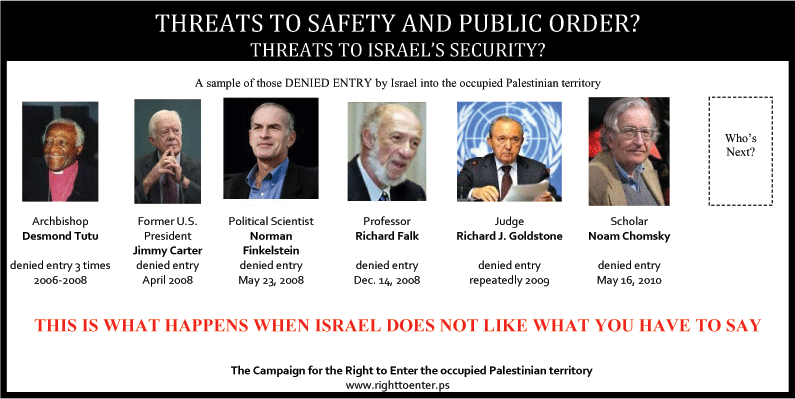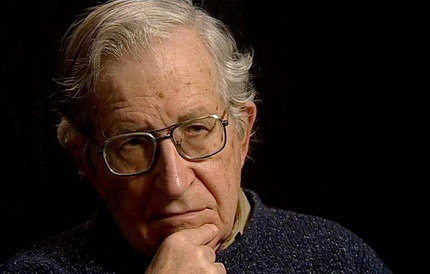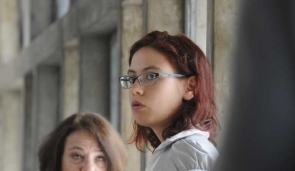
Wall Street Journal: Palestinians make surprisingly large land offer to Israel: Haaretz
In framework of proximity talks, Palestinian negotiators have reportedly proposed giving up twice the West Bank territory Abbas offered Olmert.
The Palestinian Authority has offered surprising concessions to Israel regarding borders for a future state, the Wall Street Journal reported on Friday.
In the framework of proximity peace talks now being mediated by the United States’ special Middle East envoy George Mitchell, Palestinian negotiators have reportedly offered to match and even double the amount of West Bank land territory that Palestinian President Mahmoud Abbas offered to former prime minister Ehud Olmert during their one-on-one 2008 talks.
During those talks, Abbas offered Olmert to exchange 1.9% of West Bank land for an equal amount of Israeli territory. Olmert countered with a much higher demand of his own, which the current reported offer would still not come close to matching.
Palestinian officials told The Wall Street Journal that the unexpected proposal was being made due to their assumption that Prime Minister Benjamin Netanyahu was not serious about reaching a final status deal within the indirect negotiations.
Palestinian chief negotiator Saeb Erekat said his government was approaching the proximity talks in good faith and “are not going to waste Mitchell’s time.
“We want Mr. Mitchell to succeed because his success is our freedom,” he said.
Mitchell was in the region this week for talks with Abbas and Netanyahu. A statement from Netanyahu’s office said they had discussed during their meetingsthe possibility of gestures toward the Palestinians. No details were given, but the gestures seemed likely connected to easing movement for Palestinians in the West Bank.
Palestinian nonviolence relies on global non-silence: The Guardian CiF
The world cannot expect Palestinians to abandon violence while remaining silent on Israel’s repression of nonviolent activists
When will there be a Palestinian Gandhi? I’m often asked this question by people who sympathise with Palestinian suffering but are uncomfortable associating themselves with resistance movements that they see as violent or terrorist.
The reality of course is that Palestinian nonviolent resisters are not only active today but have a long and storied history in the Palestinian struggle. The real question is: why haven’t we heard about them?
Like many resisting oppression, Palestinian Gandhis are likely to be found in prisons after being repressed by Israeli soldiers or police or in the hospital after being brutally beaten or worse.
In recent years, the Israeli repression of Palestinian nonviolent dissent has increased significantly and Israel is showing signs of transforming into a fully-fledged police state. Even Israeli citizens, both Palestinian such as Ameer Makhoul and Jewish, have faced intimidation in one form or another for being critical of Israel’s policies. Surely, Israel has realised that its ongoing occupation, continued colonisation of Palestinian land, and its bombardment of civilian-packed Gaza have significantly and negatively impacted on its image abroad. The images of nonviolent Palestinian protests against the Israeli occupation aren’t helping Israel’s reputation either.
Perhaps that is why recently many nonviolent activists and initiatives have been shut down and repressed. Jamal Juma, Muhammad Othman and Abdallah Abu Rahman may not be household names like Gandhi or Mandela but they have been just as consistent in resisting Israel’s illegal segregation wall in the West Bank by organising nonviolent demonstrations for years. And, like Gandhi and Mandela they have paid a price by being arrested on multiple occasions.
The Israeli repression efforts extend far beyond the arrests of nonviolent demonstrators against the wall. Last month, Palestinian and international activists sat in front of Israeli bulldozers about to confiscate more Palestinian land for the expansion of a settlement. Soldiers quickly dispersed the crowd and thoroughly pummelled and pepper-sprayed an organiser at point-blank range.
Most recently, several leaders of human rights organisations advocating Palestinian rights have been arrested and thrown into jail for allegedly posing security risks to the state. One of them, Izzet Shahin, is a Turkish national whose crime was organising boat shipments of humanitarian aid to the besieged people of Gaza. During past attempts to bring supplies to the blockaded strip, the boats were commandeered by the Israeli navy and the nonviolent activists were arrested before being deported even though they had never entered Israeli waters.
The list goes on, and despite the increase in Israeli repression, Palestinian nonviolent resistance is nothing new. While some have adopted an Israeli narrative that identifies nonviolent Palestinian dissent as something new, the reality is that Palestinians have consistently chosen nonviolent resistance before arms – from the general strikes of 1936, to the consistent appeals to international legal bodies, to the weekly demonstrations against the wall. It has been the continued dispossession at the hands of Israel, and the silence of the international community despite these nonviolent efforts, that has led some Palestinians to view violence as the only option.
Alas, it is often the major explosions that make headlines and not the nonviolent demonstrations or their violent repression by Israel’s secret police or its military occupation. That’s why some still wait for a Palestinian Gandhi despite the fact that they have taken many a beating and seen the inside of many a jail cell.
When an Iranian protester – Neda – was shot and killed last year, the world knew her name – so did President Obama. But most would be hard-pressed to name one of the many nonviolent protestors in Palestine who have been arrested, beaten, shot or even bulldozed to death.
The international community has an obligation to Palestinian nonviolent activists. Leaders cannot simply call on Palestinians to abandon violence in the face of Israeli occupation and remain silent when the nonviolent activists are politically repressed. This only reinforces the idea that the use of force reigns supreme and that Palestinians have no choice but to accept hardships at the hands of their Israeli lords.
Sadly, the same leaders who call on Palestinians to abandon violence have been silent in the face of Israeli repression. By condemning violent Palestinian resistance while remaining silent in the face of Israeli crackdowns and political arrests, they are simply endorsing violence against civilians by one side instead of the other.
The United States should take the lead in condemning Israeli repression of nonviolent dissent, just as they would in Iran, Burma or apartheid South Africa, because nonviolent dissent is not only a critical part of the Palestinian struggle but it is an American value as well.
EDITOR: Only Israeli Children Are Hurt
In the wake of the murderous attack by Israel in Lebanon in Summer 2006, over 35 people have died as the result of the more than a million ‘bomblets’ left behind by the only-democracy-in-the-Middle East; many of them were children. Not a single of those was important enough for any form of coverage in the Israeli media: they were not Jewish, after all. This double-standard is staggeringly striking, when huge amounts of media coverage are concentrated on an Israeli child who was hurt by an Israeli mine on occupied territory. The message seems clear: “No Israeli children should be hurt by mines, while other children are not our business, even when the bombs and mines are ours”
A child’s wish: ‘I want no one else in Israel ever to be hurt by a landmine’: The Independent
The Knesset has been moved to begin clearing some of its 260,000 mines by a remarkable 11-year-old. Donald Macintyre meets him
Friday, 21 May 2010
When the friendly boy with the shock of black curly hair, the alert blue-green eyes and the Argentinean football shorts answers the door, the last thing you would think is that he had undergone a dozen operations since losing a limb in a horrific accident three months ago. His stride is so firm that it’s a moment before you even notice that he is fitted with a prosthesis where his right leg was, before it was blown off by a landmine planted in the Golan Heights more than four decades earlier.
Though accurate, “self-possession” and “determination” seem strangely banal attributes when applied to Daniel Yuval, 11. It’s not just that he managed to walk his first steps within a month of his injury, or that he unflinchingly allowed his dressings to be changed without any form of analgesic, or that he has already made up for all the time he lost from school – getting 90 per cent in a recent science exam. It’s also that he has persuaded a majority in the Israeli parliament finally to support a long overdue start to clearing some 260,000 landmines that currently hold hostage an area about the size of Jerusalem and Tel Aviv together – 1 per cent of Israel and the Occupied Territories.
It was back in February that Guy and Tali Yuval, Daniel, their other son and three daughters, decided to make a detour to the Golan Heights, where snow had freshly fallen, on their way to visit the children’s grandparents in Haifa. Many other Israelis had had the same idea, and with not too many places to park, Guy left the two younger girls with their mother in the car, while he, Daniel, 12-year-old Amit, and 8-year-old Yoav walked into the Mount Avital nature reserve. There were other families relaxing there already.
“We threw snowballs and played around for about five minutes,” said Daniel. “Then I remember taking a step forward and I heard the explosion. For a few minutes I don’t remember much. My father picked me up.”
His father Guy Yuval recalls how everyone else in the vicinity immediately scattered, some thinking the explosion had been caused by a rocket. Recognising that his son’s leg had been severed by a landmine – which had also poured shrapnel on to his sister Amit – Mr Yuval applied a tourniquet to Daniel’s right leg while gripping the left one, also bleeding from shrapnel. “I was suddenly alone now,” he remembered. “And we were in the middle of a minefield.”
Not knowing where other mines might be, Mr Yuval followed the footprints left by his family and others to make a grim, ginger, 10-minute journey back to safety. “Daniel told me to make the tourniquet tight, and he asked me at one point if we could stop for a second and attach his leg back on.” In fact he seemed as concerned about his sister as himself. “He didn’t cry at all.”
It was later that, as Daniel wrote in a letter to all 120 Knesset members, he realised the full extent of what had happened, and what it meant. “When I awoke from the surgery at the hospital and saw my amputated right leg,” he wrote, “I told my Mum that I wanted no one else to ever be hurt by a landmine, and that I mean to do something about that.”
This turned out to be an understatement. Since then he has launched a high-profile campaign, in which he has managed to speak to a range of senior government figures – from Prime Minister Benjamin Netanyahu down – culminating in a visit to the Knesset this month. On that visit, he met the opposition leader Tzipi Livni and spoke to a meeting of the parliamentary Foreign Affairs and Defence Committee, whose chairman Tzachi Hanegbi is now promoting a bill to set up a mines clearance authority. The cost of the task is estimated at about $60m (£42m). Like the US, China, India and much of the Middle East, Israel is not among the 158 signatories of the 1997 UN convention against the use of landmines.
Daniel’s unlikely lobbying was greatly helped by Survivor Corps, the anti-landmine organisation founded by a veteran American campaigner Jerry White. White, who himself lost a leg to a mine while hiking in the Golan as an exchange student in 1984, helped to draft the 1997 convention. He saw that Daniel – an Israeli boy from a middle class family – had rare potential to galvanise Israel’s political establishment into the action he had long urged. Mr White told The Jerusalem Post this month: “In the international landmine campaign, we had a tipping point with Princess Diana… Daniel Yuval is the tipping point where Israelis woke up. Every year there are Palestinians, Thai labourers and even cattle who are injured by mines, but this time it really hit home. This was the next generation, playing in the snow.”
Daniel is anything but star-struck by his visit to the Knesset. “I wasn’t very interested in all the politicians,” he told The Independent this week. “I was only interested in talking about the mines.” But he had made a big change already? “I hope I will make a big change, but I haven’t seen that change yet. The bill has to go through the Knesset three times before it becomes law. Only when it will pass will I make a big change.”
Nor is he impressed by security arguments in favour of preserving the mines. “People are always inventing a new story not to remove the landmines.” Accepting that a minority of the mines may have to remain at some of Israel’s borders, he says: “There should not be mines where people travel.”
This was not a case of pushy parents urging their son on. Guy Yuval is still traumatised by finding himself alone with his three children, two badly injured, in a snow-covered minefield last February. “I still haven’t recovered from that,” he says. He says he is “apolitical” and would never normally have had the “energy” for a visit to the Knesset had it not been for the determination of a son who, even before his accident, was strong-willed and “a little difficult to control”.
Einat Wilf, a Labour member of the Knesset Foreign Affairs committee who is backing the new bill, says that Daniel’s campaign has provided a “moment of grace” in which the long-ignored issue of mine clearance is engaging the Israeli public and political establishment. “It was clear that this could have been anyone. It was a normal Israeli family that had gone to see the snow and everyone can identify with that.”
Nevertheless she envisages that, even if the bill is passed, progress could be gradual. The first target would be the Israeli border areas with Jordan, with whom Israel has a peace treaty, and where rural communities have watched with increasing anger as Jordanian troops on the other side of the river have removed some 58,000 mines while those in Israel remain. This could be followed by “non-operational minefields” – which comprise the vast majority throughout the country – in the interior of the Golan Heights. Removal of those in the occupied West Bank could be part of any peace deal with the Palestinians, she thinks. But Daniel, who this week opens a new campaign website, danielyuval.org, will be keeping up the pressure.
Meanwhile Daniel’s mother Tali acknowledges that, on one level, the campaign has helped Daniel’s therapy. He says the only time he gets angry at what happened is when he gets up in the morning and has difficulty putting his leg on. But both parents are struck by his overwhelmingly “positive” attitude despite periods of acute pain. Passionate about football, he hopes, artificial limb technology permitting, to play again one day.
He recalls that he told his father two things after he woke up in hospital and realised he had lost his leg. “One was that we would try to make sure it didn’t happen to other people, and the other was that I’ll do my best in physiotherapy provided you stop supporting Barcelona and Chelsea and choose Manchester United instead; and in Israel support Hapoel Tel Aviv instead of Maccabi Tel Aviv.” The second, at least, was a good call. Hapoel Tel Aviv, one of whose players visited Daniel in hospital, has just won the Israeli double. Many people will be hoping that the 11-year-old’s judgement will prove as prescient on Israeli landmines.




